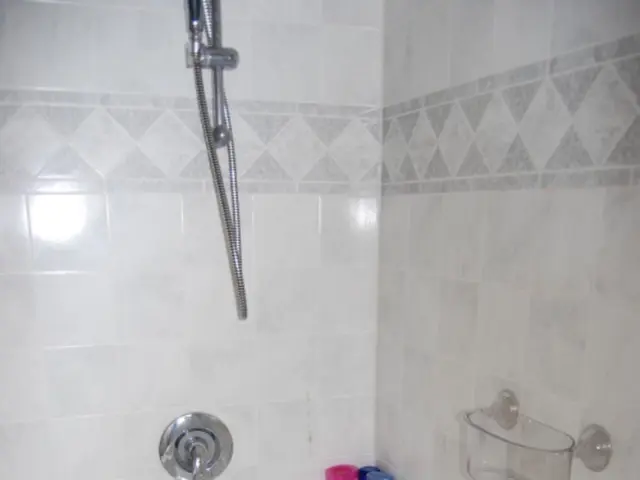Renting privately contributes to a growing mental health predicament, according to a recent study
The London Renters Union (LRU) has sounded the alarm, suggesting that the UK's private rental sector is causing a mental health crisis for millions of people [1]. The union's concerns are echoed by a myriad of reports, which paint a picture of millions of renters trapped in an extortionate and insecure renting system [1].
The private rental sector, primarily designed for profit, is failing to meet renters' basic needs [2]. Renters face the threat of unfair eviction, especially in areas like London, and are twice as likely to be in problem debt [3]. Moreover, a quarter of renters report a negative impact on their physical health due to private renting, while one in three renters feel that private renting negatively impacts their mental health, and three in five renters feel depressed about paying their rent [4].
In response to these concerns, the government has proposed the Renters' Rights Bill 2025. The bill aims to address rising rent costs and tenant protections but does not implement direct traditional rent control mechanisms like fixed rent caps [5]. Instead, it focuses on limiting rent increases, abolishing no-fault evictions (Section 21), banning rental bidding wars, and improving housing standards, which indirectly help address housing affordability and stability concerns linked to mental health issues and financial strain in tenants [1][2][3].
Key features of the Renters’ Rights Bill relevant to rent control and tenant well-being include the abolition of Section 21 evictions, limiting rent increases, introducing lifetime deposits, banning rental bidding wars, and the application of the Decent Homes Standard and ‘Awaab’s Law’ to rental properties [1][3]. The bill also aims to prevent discrimination against tenants in receipt of benefits or with children, improving access to housing for vulnerable groups [3].
While these measures represent significant reforms toward tenant protection and affordability, critiques and proposals from housing policy experts argue that more direct rent controls similar to those in other countries are needed to fully address the affordability crisis [4]. Some advocate for a modernized Rent Act-style regulation to restore rent controls and security of tenure to more effectively cap rents and protect tenants from market volatility that drives poor mental health and displacement [4].
International evidence, such as from U.S. "second-generation rent control" studies, shows that rent control can slow rent increases and prevent displacement but also may cause unintended consequences like reduced rental supply and maintenance neglect, suggesting UK policymakers aim to balance tenant protections with landlord incentives [5].
As the Renters' Rights Bill progresses through its final stages in Parliament and awaits Royal Assent in late 2025, detailed regulations and enforcement practices will soon clarify how these protections will be implemented and their impact on the private rental market [1][2][3]. In the meantime, three in five renters report that private renting has a negative impact on their financial security [6].
References:
[1] London Renters Union. (n.d.). Our campaign. Retrieved from https://londonrentersunion.org/our-campaign/
[2] Shelter. (2021). The private rented sector. Retrieved from https://england.shelter.org.uk/housing_advice/private_renting
[3] Renters' Rights Bill 2025. (n.d.). Retrieved from https://www.gov.uk/government/publications/renters-rights-bill-2025/renters-rights-bill-2025
[4] Polley, K. (2021). Rent control: The forgotten policy. New Statesman. Retrieved from https://www.newstatesman.com/politics/housing/2021/07/rent-control-forgotten-policy
[5] Mills, J. (2021). Rent control: A solution or a problem? The Conversation. Retrieved from https://theconversation.com/rent-control-a-solution-or-a-problem-168319







